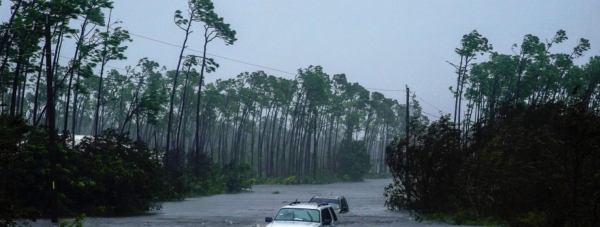Natural hazards are acts of nature out of our control. So it is understandable that when disasters occur, citizens look to their public officials and government to take charge. Arguably, disaster management can be seen as a public good because it is in the interest of the country and its citizens, and it would be heavily undersupplied if only provided by individuals, charitable organisations and/or the private sector. As disasters happen in a political space, disaster preparedness, mitigation, response and recovery are political tasks, and require a political commitment.
Our current national budget has addressed the financial strain that the damage of both the Covid-19 pandemic and Hurricane Dorian has put on the country. In 2011, disaster-related losses worldwide were upward of US$400 billion. From our own experience in The Bahamas, Hurricane Matthew and Irma combined cost an estimated $710 million; Hurricane Dorian is projected to cost at least $3.4 billion in recovery and relief efforts, with more costs in the foreseeable future due to the future influences of climate change.
Throughout the presentation of the 2021/22 Annual Budget Communication we see the usual battlecries for ‘resilience’, ‘recovery’, and ‘restoration’, yet, our political leaders have failed to show a strong political will or commitment to allocate or fund disaster mitigation, management and relief processes specifically.
During this election season, as voters it is important for us to consider how our elected public officials can lead us during a crisis or prepare us for the next one. There is no way to know how a political leader will handle a disaster crisis, but if presented with one, it becomes critical in how we view our leadership. Thus far we have only seen political commitments that focus on short-term and must-do-now agendas such as creating an entire Ministry focusing on disaster preparedness, with no notable changes or budget allocation to back up its monumental inception. Should we even begin to discuss how our Disaster Preparedness and Response Act hasn’t had a makeover since 2008?
It is no longer sustainable to depend on our usual reactive approach to disaster preparedness and management. Once the storm passes, with quick recovery and relief efforts, the political mood and agenda will go back to business as usual. The focus will again—as always—shift to short-term goals in areas like the economy, or fulfilling popular promises rather than issues like climate change education, and disaster mitigation. For our survival, we need a commitment from our leaders and decision-makers to begin making the legislative and executive changes necessary for a sustainable future. The strong political will we need will present itself in the form of a competent leader that prioritises areas of public concern such as public health and disaster risk reduction, not just economic development.
Disasters provide a true test of political leadership and competence. But there can be no economic development, or calls for ‘resilience’ and ‘restoration’ if disaster strikes again, leaving behind no country or no people to govern.
Source: Barrise Griffin (Master of Disasters, Expert in Disaster Risk Management & Development), LinkedIn 2021 (www.linkedin.com)

